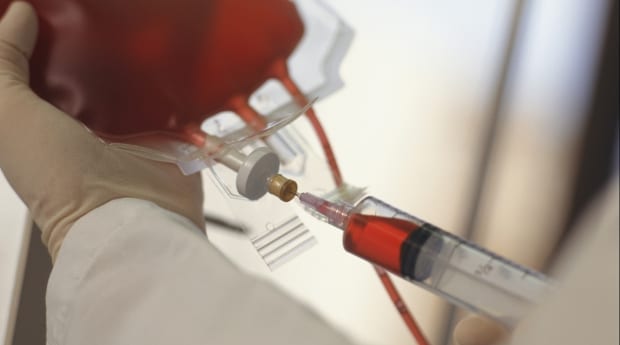The federal Liberals’ campaign promise to end the ban on sexually active gay men donating blood is nowhere in sight, with the newly appointed health minister Jane Philpott declining to comment on a timetable to end the ban.
The Liberals had been campaigning to end the gay blood ban for some time now — since 2014, the Liberal party website has hosted a petition to end the ban. The promise also made it into the party’s campaign platform during the 2015 federal election.
But after the Liberals took office, the commitment to end the ban did not appear in Prime Minister Justin Trudeau’s mandate letter to the health minister.
Reached for comment, Philpott provided the following emailed statement to Daily Xtra:
“I am pleased to report that Health Canada expects to receive a proposal from Canadian Blood Services and Hema-Quebec to reduce the donor deferral period, and will give it due consideration.”
Canadian Blood Services (CBS), the independent agency funded by provincial governments which manages Canada’s blood supply, has no immediate plans to ask Health Canada for an end to the ban. A spokesperson for the agency provided the following statement:
“In early 2016, Canadian Blood Services will submit a proposal to Health Canada to reduce the men who have sex with men (MSM) deferral period to one year from five. This submission has required several years of gathering and extensively reviewing scientific evidence and stakeholder input. We look forward to having an open dialogue with the Government of Canada about our MSM deferral policy and how we determine donor eligibility.”
When Philpott was asked through her spokesperson whether she believed that this would be considered a part of the party’s commitment to end the ban, and whether the government still intends to eliminate the ban completely and on what timetable, the minister simply resent her original statement.
Michael Bach, CEO of the Canadian Centre for Diversity and Inclusion (CCDI), says reducing the deferral period is a “step in the right direction” but he hopes the government will eliminate the ban entirely.
“We hope to be working with [the CBS] to give them the data, to do some research so that they have what they need to lift the ban entirely,” Bach says. “I think it’s unfortunate we’re still having this conversation in 2015.”
Health Canada imposed a ban on men who have had sex with men after the tainted blood scandal in the ’80s, citing statistics that show MSM are the highest risk group for HIV. But as testing technologies have become more accurate and the science of HIV transmission has become better understood, there have been calls for the blood ban to be lifted as a discriminatory relic. Activists would prefer that regulations exclude people of any orientation who engage in high-risk behaviour.
In 2013, bowing to public pressure, Health Canada announced that it was replacing the permanent ban on MSM blood donations, with a “temporary deferral” that bans donations from men who have had sex with a man in the last five years.
Canada is the only country with a temporary deferral period for MSM of more than one year. Other countries with a one-year deferral period for MSM include Australia, Brazil, New Zealand, Sweden, France and the United Kingdom. A one-year deferral has been proposed for the United States.
But many other countries have no restrictions on blood donations from MSM, including Italy, Portugal, Poland, Mexico, Argentina and Chile.
According to a 2014 study by the Public Health Agency of Canada, men who have sex with men still account for more than half of all new HIV infections in Canada, which is why Health Canada considers MSM to be a high-risk group. But all blood collected in Canada is tested for HIV before it is introduced to the blood supply. CBS currently estimates the risk of undetected HIV-positive blood being introduced into the blood supply at one in eight million.
The CCDI and Egale, Canada’s national LGBT rights organization, continue to lobby CBS to eliminate the ban altogether. They’re planning to work with researchers to present further data next year that would support ending the MSM blood ban and moving to a behaviour-based exclusion system.


 Why you can trust Xtra
Why you can trust Xtra


